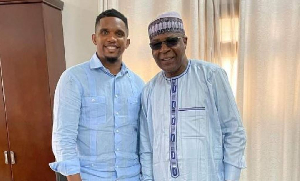A device decided on, during a summit of Central and West Africa heads of State held in June 2013 in Yaounde, the interregional Center of coordination for safety and maritime security in the Gulf went operational Thursday in Yaounde, Cameroon's capital.
This is a major step taken by the 10 member countries of the Economic Community of Central African States (ECCAS) and the other 15 of the Economic Community of West African States (ECOWAS) in their desire to fight against the lack of maritime security in this area ranked among the six hot points of piracy in the world by the international maritime organization (IMO).
Under the leadership of colonel Abdourahmane Dieng, acting executive secretary, this body has as its primary mission to make it viable for the free movement of persons and goods, by fighting fiercely and effectiveness in order to curb, the unlawful acts at sea, according to the requirements of leaders of the ECCAS and ECOWAS, associated with those of the Commission of the Gulf of Guinea (CGG).
The choice of Cameroon in hosting the headquarters had been arrested at the summit of June 2013 by the adoption of a joint declaration, of a memorandum of understanding between the ECCAS, ECOWAS and the CGG and of a "Code of conduct relating to the prevention and suppression of acts of piracy and armed robbery against ships and illegal maritime activities in Western and Central Africa".
Target of the lusts of the world powers, the Gulf of Guinea, class "vital space" by the United States for its hydrocarbon resources, is a vast territory, which extends from Ivory Coast to Angola and which account 12 major ports ( Abidjan, Accra, Lome,Cotonou, Lagos, Warri, Port Harcourt, Douala, Port Gentil, Black Tip, Matadi, Luanda) as well as a multitude of small ports.
According to the analyzes, with close to 70% of concentration of production of black gold of Africa, its growth potential oil seems higher than that of Russia, the Caspian Sea or of South America and the projections indicate that it will exceed the production of all the countries of the Persian Gulf in 2020. For the time being, to believe the estimates, this region provides nearly 40% of oil consumption in Europe and 29% of that of the United States.
Its sub-soil abounds in natural gas and in strategic minerals such as uranium and the coltan which, added to the diamonds and gold, without forgetting that its maritime waters are also rich in fishery resources.
With an annual shortfall estimated at $2 billion U.S. for the trade, the acts of piracy and armed robbery at sea there are croissants, statistics showing an increase of these acts from 56 in 2010 to 130 in 2013, mainly in the territorial waters of Nigeria, oil-producing country in Africa.
Actualités of Saturday, 13 September 2014
Source: Xinhua













